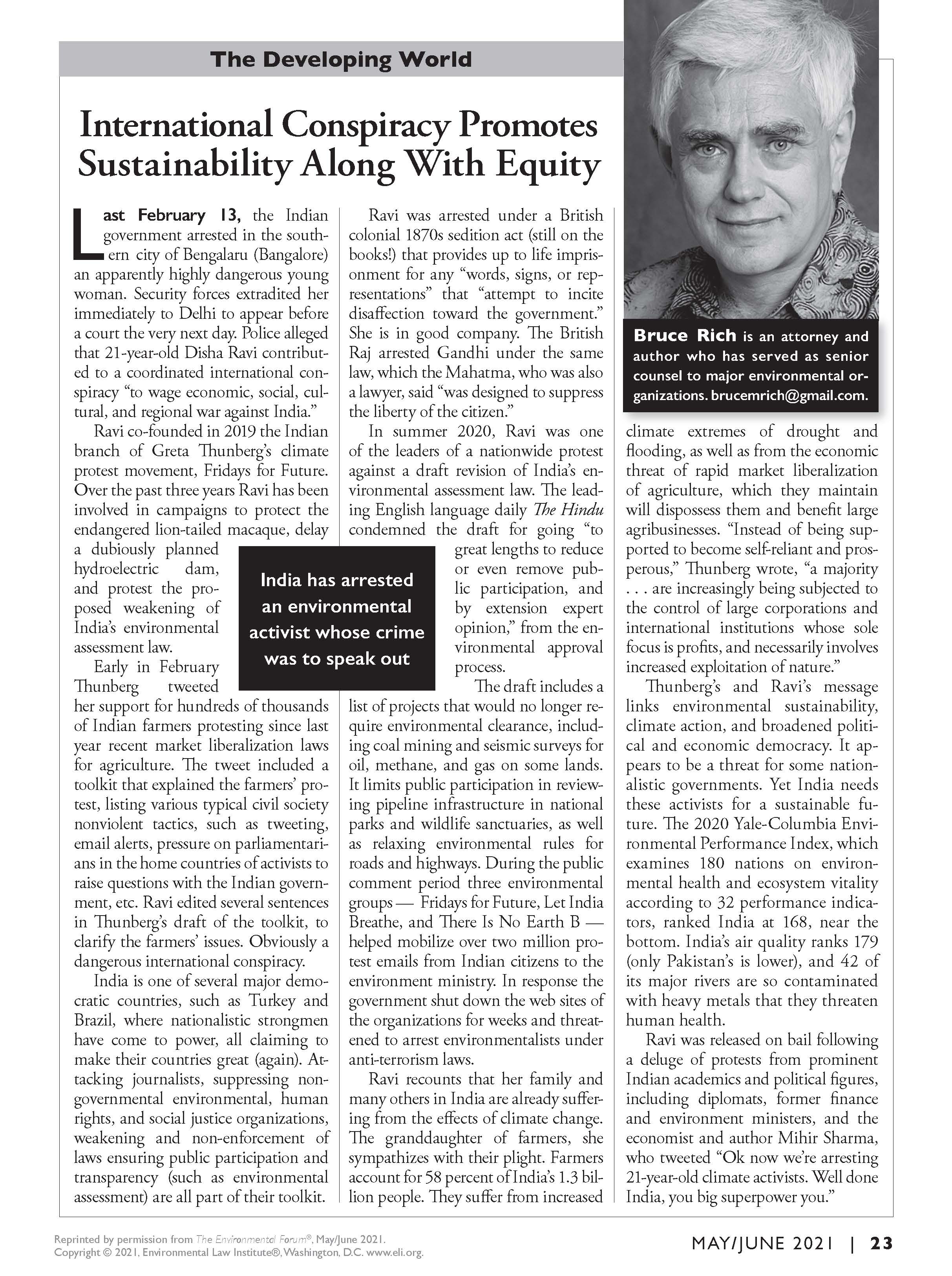- Bruce Rich
- Environmental Forum
- May-June, 2021
- p. 23
Last February 13th the Indian government arrested in the south Indian city of Bengalaru (Bangalore) an apparently highly dangerous young woman. Security forces extradited her immediately to Delhi to appear before a court the very next day. Police alleged that 21year old Disha Ravi contributed to a coordinated international conspiracy “to wage economic, social, cultural and regional war against India.” Ravi co-founded in 2019 the India branch of Greta Thunberg’s climate protest movement, Fridays for Future. Over the past three years Ravi has been involved in campaigns to protect the endangered lion-tailed macaque, delay a dubiously planned hydroelectric dam, and protest the proposed weakening of India’s environmental assessment law. Early in February Thunberg tweeted her support for hundreds of thousands of Indian farmers protesting since last year recent market liberalization laws for agriculture. The tweet included a toolkit that explained the farmers’ protest, listing various typical civil society non-violent tactics, such as tweeting, email alerts, pressure on parliamentarians in the home countries of activists to raise questions with the Indian government, etc. Ravi edited several sentences in Thunberg’s draft of the toolkit, to clarify the farmers’ issues. Obviously a dangerous international conspiracy.
Thunberg’s and Ravi’s message links environmental sustainability, climate action and broadened political and economic democracy. It appears to be a threat for some nationalistic governments. Yet India needs these activists for a sustainable future. The 2020 Yale-Columbia Environmental Protection Index, which examines 180 nations on environmental health and ecosystem vitality according to 32 performance indicators, ranked India at 168, twelfth from the bottom. India’s air quality ranks 179 (only Pakistan’s is lower), and 42 of its major rivers are so contaminated with heavy metals that they threaten human health. Ravi was released on bail following a deluge of protests from prominent Indian academics and political figures, including diplomats, former finance and environment ministers, and the economist and author Mihir Sharma, who tweeted “Ok now we’re arresting 21-year old climate activists. Well done India, you big superpower you.” Meena Harris, the niece of U.S. Vice-President Kamala Harris, urged her twitter followers to “ask why activists are being targeted and silenced by the government.”



